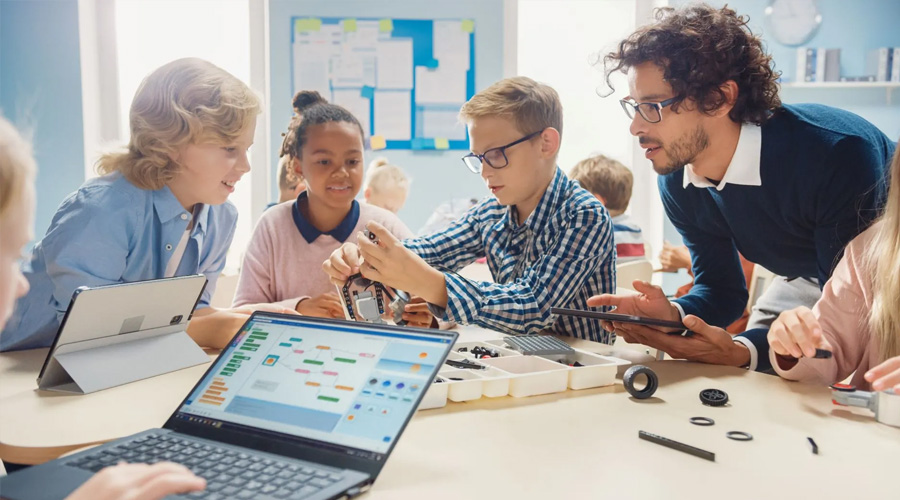Artificial intelligence (AI) is rapidly changing the world, and education is no exception. AI is being used to personalize learning, provide feedback, and create immersive learning experiences.
Here are some of the ways that AI is enhancing education:
Personalized learning
AI can be used to personalize learning by tailoring instruction to each student’s individual needs. This can be done by using AI to track student progress, identify areas where students need help, and provide personalized learning recommendations.
For example, Carnegie Learning’s MathiaTutor uses AI to personalize math instruction for each student. The system tracks student progress and identifies areas where students need help. It then provides personalized instruction and feedback to help students master the material.
Feedback
AI can also be used to provide feedback to students. This can be done by using AI to grade student work, provide feedback on student writing, and identify areas where students need to improve.
For example, Pearson’s WriteToLearn uses AI to provide feedback on student writing. The system analyzes student writing and provides feedback on grammar, punctuation, style, and clarity.
Immersive learning experiences
AI can also be used to create immersive learning experiences. This can be done by using AI to create virtual reality (VR) and augmented reality (AR) experiences.
For example, Strivr’s VR training platform uses VR to create immersive learning experiences for healthcare professionals. The platform allows healthcare professionals to practice procedures in a safe and realistic environment.
These are just a few examples of the ways that AI is enhancing education. As AI continues to evolve, it is likely that AI will have an even greater impact on education.
Here are some of the challenges and opportunities associated with using AI in education:
Challenges
- Cost: AI can be expensive to implement. This is because AI requires specialized hardware and software.
- Data: AI requires large amounts of data to train and operate. This can be a challenge for schools that do not have access to a lot of data.
- Bias: AI can be biased. This is because AI is trained on data that is collected from humans. If the data is biased, then the AI will be biased.
Opportunities
- Personalized learning: AI can be used to personalize learning for each student. This can help students learn more effectively and efficiently.
- Feedback: AI can be used to provide feedback to students. This can help students improve their skills and knowledge.
- Immersive learning experiences: AI can be used to create immersive learning experiences. This can help students learn more effectively and retain information for longer periods of time.
Overall, AI has the potential to revolutionize education. AI can be used to personalize learning, provide feedback, and create immersive learning experiences. As AI continues to evolve, it is likely that AI will have an even greater impact on education.









Be the first to write a comment.